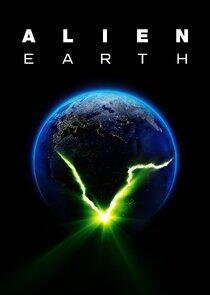NOVA - Season 2

Season 2

Episodes

Why Do Birds Sing?
NOVA travels to forests and marshes to discover why birds sing and finds surprising parallels with the acquisition of speech in humans.

How Much Do You Smell?
Many insects and some mammals use smell as a primary means of communication. NOVA explains how, for example, the entire economy of an ant's nest is organized by smell, and how some moths use smell for population control—an ability we is now beginning to understand.

The Hunting of the Quark
Smashing matter into ever smaller pieces in an attempt to find its fundamental building blocks has produced a confused nightmare of particles. NOVA looks at this on-again, off-again story—one of sciences's most mysterious—and, one of the most expensive, involving some of the biggest machines in the world.

The Secrets of Sleep
Most of us spend one-third of our lives in a state of which we understand remarkably little—some people sleep for only a few minutes a night, and function perfectly well, while others declare that eight hours isn't enough. NOVA explores traditional notions about how much sleep we need; looks at effects of the sleeping pill, and, perhaps the most baffling of all aspects of sleep—dreaming.

Inside the Golden Gate
NOVA joins a team of U.S. Geological Survey scientists on a mission to find out just how San Francisco Bay works: its physics, its chemistry and its biology.

The Men Who Painted Caves
Just why did Cro-Magnon man living in France's Dordogne Valley some 15,000 years ago take time out from the desperate business of survival to paint pictures in inaccessible corners of his cave dwellings? NOVA joins French and American archeologists as they piece together the lifestyle of these hunters of the last great Ice Age, and try to interpret the meaning of their cave art.

Red Sea Coral
NOVA joins a group of English biologists living literally on a platform in the middle of the Red Sea, who for several years have been studying the crown-of-thorns starfish, notorious for the devastation it has wrought on the coral reefs of Australia and the Pacific.

War from the Air
NOVA explores how science and technology play a major role in the design of weapons of war and the development of strategies for their use.

What Time Is Your Body?
Have you ever sensed that your body reacts differently at different times of the day? NOVA examines the best and worse times for work, good times for sex drives and your body's most reactive time of day for alcohol consumption.

The Rise and Fall of DDT
Has the case against DDT been proven? A strange question, perhaps, to be asking one year after the US has banned the insecticide, but NOVA dares to ask. Tracing the history of DDT from its discovery through its banning in the States, NOVA asks whether America overreacted with its total ban of this once acclaimed "wonder" chemical.

Take the World from Another Point of View
NOVA profiles two very different scientists: Richard Feynman, a theoretical physicist, at the pinnacle of his career—a Nobel prizewinner; and Richard Lewontin, a biologist and highly regarded population geneticist from Harvard University.

The Lysenko Affair
NOVA explores T.D. Lynsenko's rise to power in the Soviet Union in the early 20th century, and how it affected plant genetic research in the USSR.

The Tuaregs
High in the Hoggar Mountains, in the exact center of the Sahara desert, lives Sidi Mohammed and his family: children, grandchildren, cousins and a few former slave women. Their environment, one of the most ungenerous on earth, provides them with almost nothing. NOVA examines the changing lifestyle of Sidi Mohammed.

The Plutonium Connection
How likely is it that a terrorist group will steal plutonium intended for nuclear reactor fuel and put together a blackmail weapon of unprecedented power in the shape of a homemade atom bomb? That question is posed by Theodore Taylor, former A and H bomb designer at Los Alamos, in a recent book, The Curve of Binding Energy. NOVA investigates just how easy it would be to design a bomb using unclassified information.

The Other Way
Since the Industrial Revolution, bigger has been better. NOVA profiles E.F. Schumacher, the author of Small is Beautiful, who thinks that enough is enough; that the time has come for technology to return to a human scale, where the ability to create is returned from the machine to people.

The Lost World of the Maya
Since the Industrial Revolution, bigger has been better. NOVA profiles E.F. Schumacher, the author of Small is Beautiful, who thinks that enough is enough; that the time has come for technology to return to a human scale, where the ability to create is returned from the machine to people.

Will the Fishing Have to Stop?
Fish is an excellent source of protein; it could help ease the growing international food shortage. But in 1972 the total world fish catch dropped. NOVA explores the possible reasons for this decline.
Recently Updated Shows

48 Hours
48 Hours is a CBS news magazine that investigates intriguing crime and justice cases that touch on all aspects of the human experience. Over its long run, the show has helped exonerate wrongly convicted people, driven the reopening -- and resolution -- of cold cases, and changed numerous lives. CBS News correspondents offer an in-depth look into each story, with the emphasis on solving the mystery at its heart. The program and its team have earned critical acclaim, including 20 Emmys and three Peabody Awards.

Invasion
Earth is visited by an alien species that threatens humanity's existence. Events unfold in real time through the eyes of five ordinary people across the globe as they struggle to make sense of the chaos unraveling around them.

Wednesday
Smart, sarcastic and a little dead inside, Wednesday Addams investigates a murder spree while making new friends — and foes — at Nevermore Academy.

Alien: Earth
When the mysterious deep space research vessel USCSS Maginot crash-lands on Earth, Wendy and a ragtag group of tactical soldiers make a fateful discovery that puts them face-to-face with the planet's greatest threat.

Peacemaker
This James Gunn-created series continues the saga of Peacemaker, a vainglorious superhero/supervillain who believes in peace at any cost — no matter how many people he has to kill. After a miraculous recovery from his duel with Bloodsport, Peacemaker soon discovers that his freedom comes at a price.